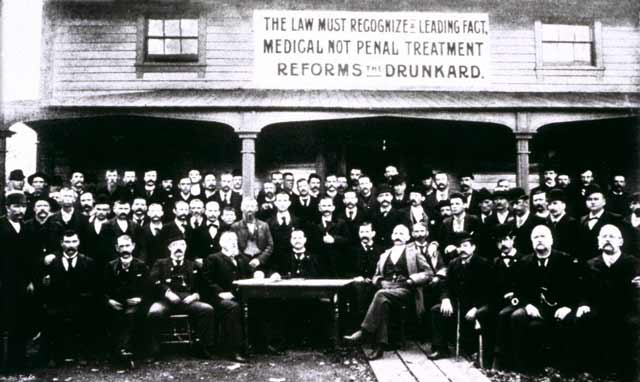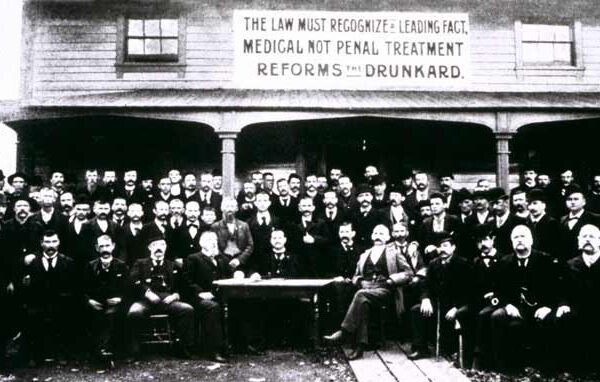
It seems like more is being said about drug policy than ever before. I’ve been posting thoughts about drug policy here for years. However, as I read comments from others, I often wonder whether we’re talking about the same things. To be honest, I haven’t given a lot of thought to the conceptual boundaries of “drug policy” when I use the term.
As I contemplated the term, it occurred to me that I’d never seen anyone unpack all that the term could encompass. If you’ve seen something that does so, please share it in the comments.
Off the top of my head, here are some of the things that might fall under the umbrella of “drug policy.” Feel free to point out things I missed in the comments.
- The criminal status of the substance
- If possession and/or use is illegal:
- Is it a felony, misdemeanor, or civil infraction?
- What are the penalties and/or interventions?
- If it’s legal:
- Is it regulated? If so, how?
- What’s the minimum age? What’s the penalty for selling to someone underage?
- Are sales of it legal? If so, by who? The state?
- If retail, do sellers need a license? Is there any management of outlet density?
- Is there minimum unit pricing?
- Are there any limits on quantities possessed?
- Are content and potency regulated?
- Are research and development regulated to manage innovation in drug creation, preparation, and consumption methods?
- Is marketing regulated? Is targeting minors prohibited? Are billboards allowed?
- Is there any effort to manage the influence of industry groups? (limiting size, restricting lobbying, etc.)
- Where can it be consumed?
- What’s the response to public intoxication?
- Are hours/days of sales limited?
- Is it medicalized?
- Does it require a prescription?
- Is it sold in pharmacies?
- Are active ingredients subject to approval from a body like the FDA?
- What’s the tax status?
- How is tax revenue used?
- Is the tax rate intended to impact consumption?
- How is it taxed (weight/volume, potency, price, etc.)?
- Is there any attention to tax revenue creating incentives for governments to protect the industry?
- How do we manage crime that is related to substance use? (property crimes, impaired driving, interpersonal violence, etc.)
- Is substance use considered in prosecution, sentencing, and monitoring?
- Is coerced treatment an acceptable alternative to incarceration or other penalties?
- Is it regulated? If so, how?
- If possession and/or use is illegal:
- Public health policy
- Primary prevention – what interventions are used to prevent substance misuse?
- Secondary prevention – what are the practices for screening and early intervention to identify and address misuse?
- Tertiary prevention – what interventions are used to prevent the progression of established substance abuse before health consequences emerge?
- Harm reduction – what interventions are used to reduce or prevent the negative effects of ongoing drug use?
- How do we address the medical and mental health problems associated with substance use?
- Research
- How is it funded?
- Who determines the research priorities?
- Who determines what gets published?
- How does research get translated into practice?
- Treatment policy
- What treatments are available?
- What treatments are funded?
- What treatments are prohibited?
- What treatments are favored?
- What endpoints are identified and prioritized?
- What’s required of funders? Parity? Required covered services?
- What’s required of treatment providers?
- Are social determinants of health the responsibility of the treatment system, other systems, or the individual?
- What’s it like to access treatment? What’s available on demand? What hoops need to be jumped through to access higher levels of care?
- Policies related to the cultural status of the drug
- What norms are communicated in schools and public education campaigns?
- How is substance use thought of? (As a good thing, a neutral thing, an unavoidable and unfortunate part of human communities, a sin?)
- How do we conceptualize misuse and addiction?
- Is it an individual problem? A personal responsibility?
- Is it an illness? Are some patterns an illness and others not?
- How do we communicate that?
- Where harm occurs, how do we think about the harms of use that may be experienced by children, other adults, or communities?
- Who’s responsible for addressing these harms?
- What strategies are used to mitigate these harms?
- What’s the response to public intoxication or disruptive behavior related to drug consumption?
- What goals, outcomes, and endpoints are selected for treatment and public health policies?
- Where can it be consumed?
- Where are outlets zoned, geographically? (Downtowns, neighborhoods, or more industrial areas?)
- Do we create settings for communal substance use?
- Are they commercial settings, like a bar, restaurant, or cigar bar?
- Are they medicalized settings, like drug consumption rooms?
- If the substance is medicalized:
- Is there consideration of how that, at the individual level, changes object attachment?
- If there isn’t gatekeeping by a prescriber and pharmacy, how does medicalization change the threshold for initiation?
Mark Kleiman was a thoughtful contributor to discussions on drug policy, with some of the most comprehensive and nuanced takes that I’ve encountered. In the paragraphs below, I think he does a good job managing expectations and explaining our obligations to do better. (Note: He published this when terms like substance abuse and substance abuser were the norm.)
Any set of policies will therefore leave us with some level of substance abuse—with attendant costs to the abusers themselves, their families, their neighbors, their co-workers and the public—and some level of damage from illicit markets and law enforcement efforts. Thus the “drug problem” cannot be abolished either by “winning the war on drugs” or by “ending prohibition.” In practice the choice among policies is a choice of which set of problems we want to have.
But the absence of a silver bullet to slay the drug werewolf does not mean we are helpless. Though perfection is beyond reach, improvement is not. Policies that pursued sensible ends with cost-effective means could vastly shrink the extent of drug abuse, the damage of that abuse, and the fiscal and human costs of enforcement efforts. More prudent policies would leave us with much less drug abuse, much less crime, and many fewer people in prison than we have today.
Dopey, Boozy, Smoky—and Stupid by Mark Kleiman
